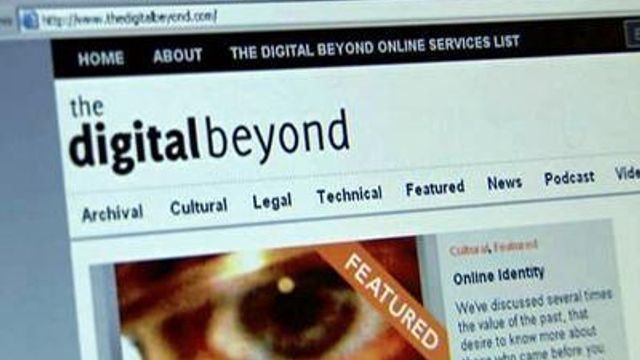Preparing for your digital afterlife
From photos on networking sites to posts on messages boards, personal online content has created a new question: What kind of legacy do you want to leave behind on the Web after your death?
Posted — UpdatedAs more people participate in social networking, they are starting to think about what will happen to their online presence after their death.
The birth of 9-month-old Eowyn – and all the pictures of her posted online – prompted her parents, Tommy and April Williams, to think about how to care for their family if one of them dies. That includes handling their Facebook and e-mail accounts.
"April knows the list of passwords I rotate through. I know the one that she uses," Tommy Williams said.
From photos on networking sites to posts on messages boards, personal online content has created a new question: What kind of legacy do you want to leave behind on the Web?
Romano and co-creator Evan Carroll said it doesn't occur to many people that some digital assets, such as family pictures, can be precious to their relatives.
"These are family heirlooms. These are things the survivors want to keep forever," Romano said.
Many of those sites, though, are password-protected, so relatives could have difficulty getting onto them.
The deceased also might want to keep some aspects of their digital lives hidden from others.
"Whatever you put out there on the Internet has the potential to outlast you," Carroll said.
"You're not going to be there to push the button, so you need to be able to be honest with somebody in this world and say, 'I want you to go out and delete this account,'" Romano said.
Laws haven't caught up with changes in the dotcom era, so, Romano said, Internet users need to pick someone they trust to be a "digital executor."
Along with your passwords and online accounts, that person needs instructions on how to retrieve valuable files that might be on the deceased's hard drive.
Tommy Williams said that that although it's tough, people need to talk about what they want after their death.
"A lot of people don't link to think about their own mortality. It's difficult," he said. "It is real, very real."
• Credits
Copyright 2024 by Capitol Broadcasting Company. All rights reserved. This material may not be published, broadcast, rewritten or redistributed.





